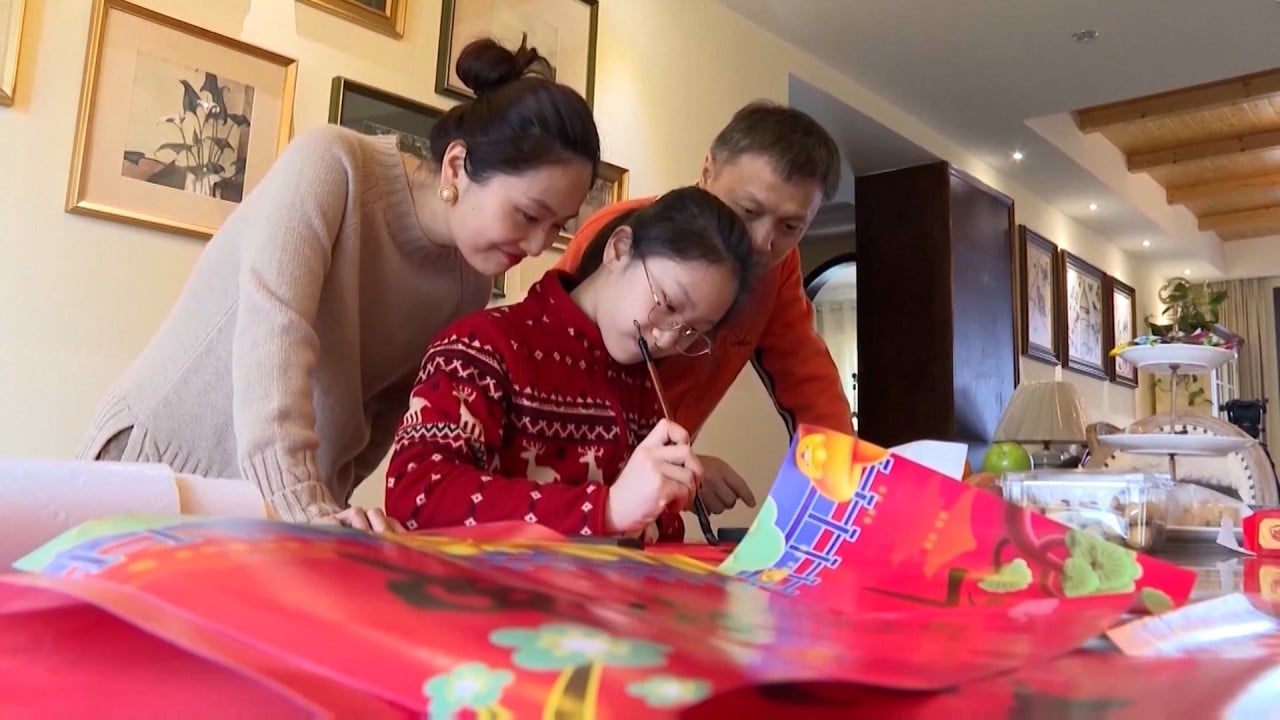
Coronavirus: train travel down but freight surges as Chinese stay home for Lunar New Year holiday
- Railway passenger traffic drops nearly 70 per cent in first 15 days of the travel rush, when hundreds of millions usually visit their families
- Restrictions aimed at curbing the spread of Covid-19 also resulted in huge demand for freight transport, railway operator says
Lunar New Year’s Day fell on Friday, but the annual 40-day travel period – known as chunyun or the Spring Festival travel rush – officially began in late January.
State media reported over the weekend that railway passenger traffic was down some 68.8 per cent to 52.3 million trips in the first 15 days of the travel period, a much steeper decline than the national rail operator had expected.
But the China State Railway Group said in a statement on Friday that rail cargo volume increased 8.9 per cent in the same period from a year ago. State broadcaster CCTV said international air cargo flights had tripled in the first four days of the national holiday that began on Thursday.

04:33
Coronavirus in China: Celebrating Lunar New Year away from home
Usually the Spring Festival travel season sees a mass migration of people, as hundreds of millions of Chinese visit their families for the holiday. Millions were stranded last year when the pandemic hit and lockdown measures were imposed across the country. Journeys on all major forms of transport during last year’s travel period fell by half to 1.48 billion trips compared to 2019, while railway passenger numbers were down 47.3 per cent, according to state media.
China’s annual Lunar New Year migration, usually the biggest of its kind, looks very different in 2021
This year, the authorities imposed travel restrictions in a bid to curb travel during the holiday after hundreds of Covid-19 infections were reported in the north and northeast of the country in January. Given those restrictions, China State Railway Group had anticipated some 296 million trips would be taken this Spring Festival – down from its initial estimate of 407 million.
It now expects the number will be even lower.
“The 2021 Spring Festival travel season may see 140 million to 150 million railway trips,” an unidentified China State Railway Group official told state newspaper China Business Journal.

The railway operator also said in its statement there had been huge demand for rail freight transport.
“Many factories have followed the government’s advice and encouraged staff to stay put and continue production around the Spring Festival period. [That has resulted in] booming demand for freight transport in the period,” the statement said.
Passenger cars were being replaced with freight wagons to meet that demand and ensure supplies of food and coal were delivered around the country during the holiday, it said.
In Wuhan, a Lunar New Year rush to pay tribute to Covid-19’s victims
With most migrant workers staying put, Wang Tao, chief China economist at UBS, said in a research note that many businesses and factories were likely to reopen sooner than usual following the holiday. But she said it remained unclear how much of a boost that would be to the economy, noting that there would also be an impact on consumption from people staying home for the festival.
In big cities like Beijing, Shanghai, Chengdu and Guangzhou, people have been going on tours and sightseeing in their local areas instead of travelling, Xinhua reported on Monday.
Meanwhile, the State Post Bureau, which oversees the postal service, last week said it expected demand for courier services to double in the first week of the Lunar New Year after shipments went up by 30 per cent from 2020 ahead of the festival.

02:54
Lunar New Year in China: Locals celebrate the start of the Year of the Ox
“I miss my family – the last time I went home was a year ago,” Mi said. “It’s the Lunar New Year, so of course I would’ve liked to spend time with my family.”
Jade Zhao, a middle school teacher in Shanghai, said her mother in Qingdao had sent her a food parcel with fish, shrimp, chicken and beef so she could have a taste of home.
The 29-year-old said it was the first time she had not spent the holiday with her family and the phone call on New Year’s Eve was tough.
“I really felt emotional realising that I was away from home,” she said. “I was all alone.”


